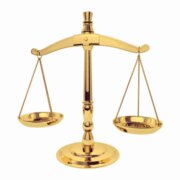Best Toxic Mold Lawyers in Ireland
Share your needs with us, get contacted by law firms.
Free. Takes 2 min.
Or refine your search by selecting a city:
List of the best lawyers in Ireland
About Toxic Mold Law in Ireland
Toxic Mold in Ireland refers to a type of mold that produces toxic substances known as mycotoxins. These mycotoxins can pose serious health risks to individuals if exposed for prolonged periods. In Ireland, laws are in place to protect individuals from the harmful effects of toxic mold and to hold responsible parties accountable.
Why You May Need a Lawyer
There are several situations where you may need a lawyer for toxic mold issues in Ireland. These include cases where your health has been affected by toxic mold exposure, disputes with landlords or property owners over mold remediation, and seeking compensation for damages caused by toxic mold.
Local Laws Overview
In Ireland, the Housing (Standards for Rented Houses) Regulations 2019 set out the standards that landlords must adhere to in rented properties, including the prevention and remediation of mold. The Environmental Protection Agency (EPA) also provides guidance on mold remediation and prevention.
Frequently Asked Questions
1. What are the health risks associated with toxic mold exposure?
Exposure to toxic mold can cause a range of health issues, including respiratory problems, skin irritations, and allergic reactions.
2. How can I determine if mold in my property is toxic?
It is best to have a professional mold inspection and testing done to determine the type of mold and whether it is toxic.
3. Can I sue my landlord for toxic mold in my rental property?
If your landlord has failed to address mold issues in your rental property, you may have grounds for legal action.
4. How do I prove that toxic mold has caused health issues?
Medical records, mold testing results, and expert testimony can help establish a causal link between toxic mold exposure and health issues.
5. What are my rights as a tenant regarding toxic mold?
Tenants have the right to a safe and habitable living environment, which includes protection from toxic mold.
6. How long do I have to file a legal claim for toxic mold exposure?
The statute of limitations for filing a claim for toxic mold exposure in Ireland is typically two years.
7. Can I seek compensation for damages caused by toxic mold?
If you have suffered damages as a result of toxic mold exposure, you may be able to seek compensation for medical expenses, property damage, and pain and suffering.
8. Can I be evicted for reporting toxic mold in my rental property?
Landlords are prohibited from evicting tenants in retaliation for reporting mold issues or exercising their legal rights.
9. How can a lawyer help with toxic mold issues?
A lawyer can help you understand your legal rights, gather evidence to support your case, negotiate with landlords or property owners, and represent you in court if necessary.
10. Is toxic mold covered by insurance?
Some insurance policies may cover damages caused by toxic mold, but coverage can vary. It is advisable to review your policy and consult with a lawyer for guidance.
Additional Resources
For more information on toxic mold in Ireland, you can visit the Environmental Protection Agency (EPA) website or contact the Residential Tenancies Board (RTB).
Next Steps
If you believe you have a legal issue related to toxic mold in Ireland, it is important to consult with a lawyer who specializes in this area of law. They can provide guidance on your options and help you navigate the legal process to protect your rights and seek compensation for damages.
Lawzana helps you find the best lawyers and law firms in Ireland through a curated and pre-screened list of qualified legal professionals. Our platform offers rankings and detailed profiles of attorneys and law firms, allowing you to compare based on practice areas, including Toxic Mold, experience, and client feedback.
Each profile includes a description of the firm's areas of practice, client reviews, team members and partners, year of establishment, spoken languages, office locations, contact information, social media presence, and any published articles or resources. Most firms on our platform speak English and are experienced in both local and international legal matters.
Get a quote from top-rated law firms in Ireland — quickly, securely, and without unnecessary hassle.
Disclaimer:
The information provided on this page is for general informational purposes only and does not constitute legal advice. While we strive to ensure the accuracy and relevance of the content, legal information may change over time, and interpretations of the law can vary. You should always consult with a qualified legal professional for advice specific to your situation.
We disclaim all liability for actions taken or not taken based on the content of this page. If you believe any information is incorrect or outdated, please contact us, and we will review and update it where appropriate.
Browse toxic mold law firms by city in Ireland
Refine your search by selecting a city.















